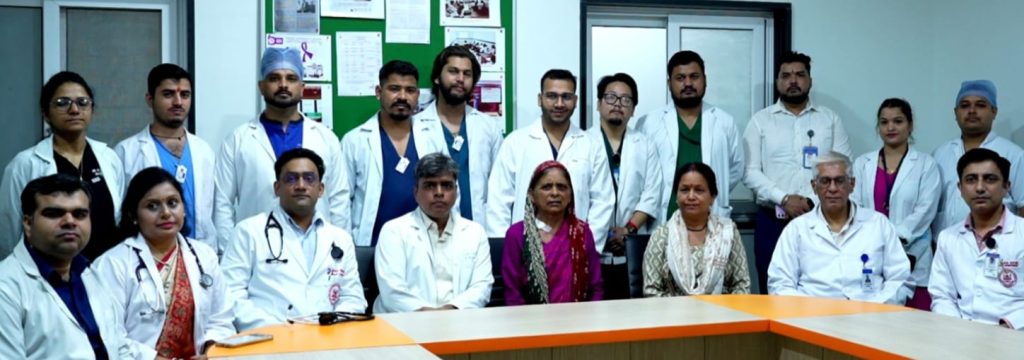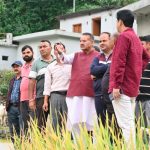Shri Mahant Indiresh Hospital’s Cardiology Team A Major Achievement
A New Revolution in Heart Treatment: Successful Dual Transcatheter Valve Replacement for the First Time in Uttarakhand
The Challenging Procedure of Dual Transcatheter Valve Replacement Performed Without Incision
Dehradun: Dr. Sahil Mahajan, Professor and Head of Unit 1 in the Department of Cardiology at Shri Mahant Indiresh Hospital, has achieved a medical breakthrough that has opened new dimensions in heart disease treatment. For the first time at the hospital, the complex and rare procedure of dual transcatheter valve replacement (transcatheter valve-in-valve aortic implantation with a self-expanding valve and transcatheter mitral valve implantation with a balloon-expandable valve) was successfully performed without incision by Professor Dr. Sahil Mahajan and Assistant Professor Dr. Mayank Agarwal. Shri Mahant Devendra Das Ji Maharaj, Chairman of Shri Mahant Indiresh Hospital, congratulated the Cardiology Department on this achievement.
This achievement by the doctors at Shri Mahant Indiresh Hospital has proven to be a milestone not only for Uttarakhand but for the entire northern India. This procedure is proving to be lifesaving for patients who have previously undergone surgical dual valve replacement and whose implanted artificial valves have begun to fail over time. This modern technique is much safer, less risky, and results in faster recovery compared to traditional open-heart surgery.
Patient Sundari Devi, who previously suffered from rheumatic heart disease (RHD) and underwent surgical dual valve replacement in 2020, was admitted to Shri Mahant Indiresh Hospital due to severe shortness of breath. Examination revealed degeneration and severe re-stenosis in both artificial valves. Given her age, weakened heart capacity, and previous major surgery, traditional open-heart surgery was considered too risky.
Following a heart team meeting, Dr. Sahil Mahajan, Professor and Head of Unit 1 Cardiology, and his team performed the challenging procedure of dual transcatheter valve replacement without incisions on the patient. The combined efforts of the entire team, including Assistant Professors Dr. Mayank Agarwal, Dr. Abhishek Mittal, and Dr. Anamika Agarwal, senior cardiac surgeon Dr. Ashok Jayanth, and Dr. Parag from the Department of Anesthesia, ensured this historic surgery was successful.
The patient was discharged from the hospital in a healthy state in just five days. This result proves that transcatheter technology now offers a new ray of hope for patients considered at high risk in conventional surgery.


